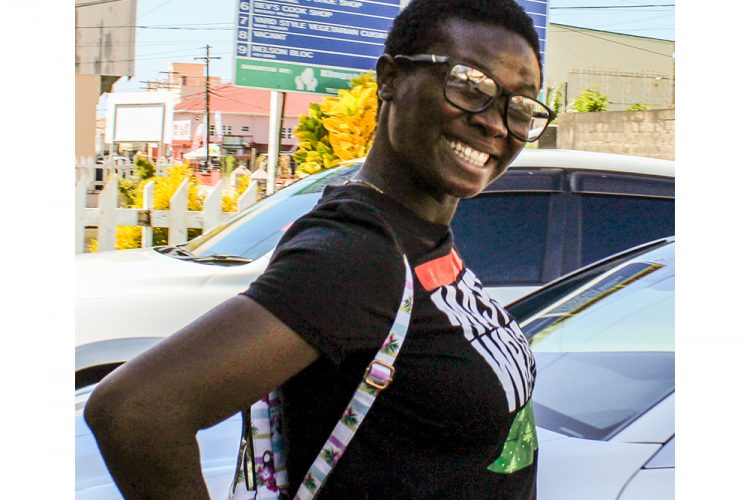Government loses quarantine case

THE FIRST BREACH of quarantine trial has ended with the discharge of the defendant, and a reminder that in order to prosecute for breaching an Order one has to satisfy a Court not the Ministry of Health.
“In any case that comes before the court, the law remains the same, the rules of evidence remain the same. So it cannot be because Covid-19 is a pandemic that somehow the court should adjust to respond to the pandemic,” Senior Magistrate Rickie Burnett commented at the Kingstown Magistrate’s Court (KMC) on January 5.
The magistrate was in the process in delivering his decision on a ‘no case’ submission made by counsel Israel Bruce, at the end of the prosecution’s case against defendant Jeyandra Jackson.
Jackson, of North Union, was previously charged for contravening an order made by Dr Roger Duncan, health officer, under section 27 (a) of the Public Health Act requiring her to quarantine yourself from other persons. She had allegedly done so on October 27, when she allegedly went to a political rally.
Although she pleaded guilty at first, the matter became the first to go to trial when Jackson made claimed that she did not receive the Order, and did not know that she had to further quarantine when she went home from the approved facility.
“Now the court recognizes that Covid-19 is a relatively new virus, but if you are going to prosecute persons for breaching an order, you have to realize that you have to satisfy a court, I repeat you have to satisfy a court, not the Ministry of Health,” Burnett also stated.
The magistrate noted “That Order of Dr Roger Duncan was fundamentally flawed in my view, the prosecution was unable to produce a copy of that order that was issued, if at all, to the defendant.”
“At one point the good doctor was going to show me something on his phone,” Burnett said, but that “with the greatest of respect” there is a proper way to lead evidence in the courtroom.
“The prosecution’s duty, in the end, is to prove its case beyond a reasonable doubt, however, at this stage the question I have to address my mind to
is whether a prima facie case has been made out,” Burnett explained.
A no case submission is made even before a defence is given, and it says that the evidence is either not there or so tenuous or weak that the defendant could not be properly convicted on it.
The magistrate, in deciding whether a prima facie case was made out for Jackson to answer looked at the totality of the evidence.
“Having addressed my mind to the legal tests at a no case submission stage, I am of the view that the prosecution’s case, taken at its highest is such that a jury properly directed, and I am that jury, could not properly convict on it,” he concluded.
Once coming to this conclusion, he is instructed by the law to stop the case.
“If I am to do so, I am not doing a favour to anyone, I am doing what the law says must be done,” he added.
Burnett noted that as a magistrate he does not make recommendations as that is not his job but “I am sure that counsel for the prosecution will address those gaping holes with the relevant authorities.”
While many others have been brought before the court for breaching an Order to quarantine, they have all pleaded guilty, thereby negating the need for a trial.
Jackson was told she was free to go, and she proceeded outside the courtroom with her counsel. She did not appear outwardly happy at this development.











